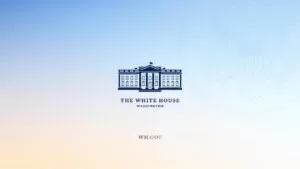President Biden has announced new measures to protect the U.S. from national security threats posed by connected vehicle technologies from China and Russia. A proposed rule from the Department of Commerce would ban the sale and import of certain vehicle systems and components linked to these countries, addressing risks of data exploitation and potential sabotage. This move is part of the Administration’s broader strategy to safeguard America’s automotive supply chains and ensure U.S. leadership in future vehicle technologies.
FACT SHEET: Protecting America
from Connected Vehicle Technology from Countries of Concern
Chinese automakers are seeking to dominate connected vehicle technologies in the United States and globally, posing new threats to our national security, including through our supply chains. The Biden-Harris Administration is committed to ensuring that our automotive supply chains are resilient and secure from foreign threats.
Today, President Biden is announcing strong action to protect America from the national security risks associated with connected vehicle technologies from countries of concern. The Department of Commerce is issuing a notice of proposed rulemaking (NPRM) that would, if finalized as proposed, prohibit the sale or import of connected vehicles that incorporate certain technology and the import of particular components themselves from countries of concern, specifically the People’s Republic of China (PRC) and Russia.
The announcement is the next step in a process President Biden announced in February, 2024. This NPRM incorporates public feedback submitted in response to the Department’s advance notice of proposed rulemaking (ANPRM) issued on March 1, 2024, which sought public comment on the national security risks associated with certain technologies used in connected vehicles.
Connected vehicles provide many benefits — from promoting vehicle safety to assisting drivers with navigation — but they also pose new and growing threats. These technologies include computer systems that control vehicle movement and collect sensitive driver and passenger data as well as cameras and sensors that enable automated driving systems and record detailed information about American infrastructure. Now more than ever, vehicles are directly connected into our country’s digital networks.
As the Department of Commerce has found, vehicles’ increasing connectivity creates opportunities to collect and exploit sensitive information. Certain hardware and software in connected vehicles enable the capture of information about geographic areas or critical infrastructure, and present opportunities for malicious actors to disrupt the operations of infrastructure or the vehicles themselves. Commerce has determined that certain technologies used in connected vehicles from the PRC and Russia present particularly acute threats. These countries of concern could use critical technologies within our supply chains for surveillance and sabotage to undermine national security.
The Department of Commerce’s proposed rule would prohibit the import or sale of certain connected vehicle systems designed, developed, manufactured, or supplied by entities with a sufficient nexus to the PRC or Russia. Specifically, the rule covers “vehicle connectivity systems” (VCS) — that is, systems and components connecting the vehicle to the outside world, including via Bluetooth, cellular, satellite, and Wi-Fi modules — and “automated driving systems” (ADS), which allow highly autonomous vehicles to operate without a driver behind the wheel. The rule includes restrictions on imports or sales of connected vehicles using VCS and ADS software, as well as imports of VCS hardware equipment. The Department of Commerce is also proposing procedures to let certain parties, such as small producers of vehicles, receive exemptions from the prohibitions on an exceptional basis, in order to minimize unanticipated and unnecessary disruption to industry.
The prohibitions on software would take effect for Model Year 2027, and the prohibitions on hardware would take effect for Model Year 2030, or January 1, 2029 for units without a model year. These restrictions will help address national security risks posed by connected vehicle technologies from countries of concern.
As the Department of Commerce develops the final rule, the Administration encourages interested stakeholders to share input with the Department so that their views can be taken into consideration. The Department will continue to consult closely with industry, U.S. allies and partners, and other stakeholders throughout the regulatory process to ensure any actions maximally protect U.S. national security, while minimizing unintended consequences or disruptions.
The Biden-Harris Administration is focused on comprehensively addressing the threats caused by foreign automobiles and supply chains. In May of this year, President Biden directed an increase from 25% to 100% on the tariff rate on Chinese electric vehicles under Section 301. The Inflation Reduction Act tied eligibility for the $7,500 EV tax credit to final assembly in North America and sourcing key battery minerals and components from the United States or trade partners. These prior actions underscore the Administration’s commitment to ensuring that the American auto industry is leading in quality and innovation, and that U.S. automakers have the opportunity to compete on a level playing field as they develop the next generation of automobiles.
September 23, 2024 Washington, DC
Critics Raise Concerns Over Biden’s Proposed Ban on Connected Vehicle Technologies
Questions:
- How will this ban affect the affordability and availability of vehicles for American consumers?
- Does the Biden Administration’s approach represent a misguided overreach into the auto industry?
- What potential negative impacts could this regulation have on small manufacturers and suppliers in the U.S.?
- Is the focus on national security a cover for protectionist policies that could stifle competition in the automotive market?
Sources: Midtown Tribune news, White House WH.gov
Big New York news BigNY.com














